- Blog
- KEEN Footwear’s Marketing Playbook: From Sandals to a Movement
KEEN Footwear’s Marketing Playbook: From Sandals to a Movement
Table of Contents
What really drives success is connection—getting people to not just buy your product, but actually believe in your brand. KEEN Footwear understands this better than most.
What started as a quirky innovation—a sandal with toe protection—has grown into a purpose-driven lifestyle brand with a loyal following and a global presence.
The secret? KEEN didn’t just sell shoes. They built a movement rooted in values, backed by smart digital marketing, and powered by a philosophy they call the “hybrid life.”
Let’s break down how KEEN turned its niche idea into a thriving business!
1. Mission-driven branding
KEEN leads with purpose. The brand’s marketing is anchored in a simple but powerful ethos: protect the planet, care for communities, and make gear that actually works.
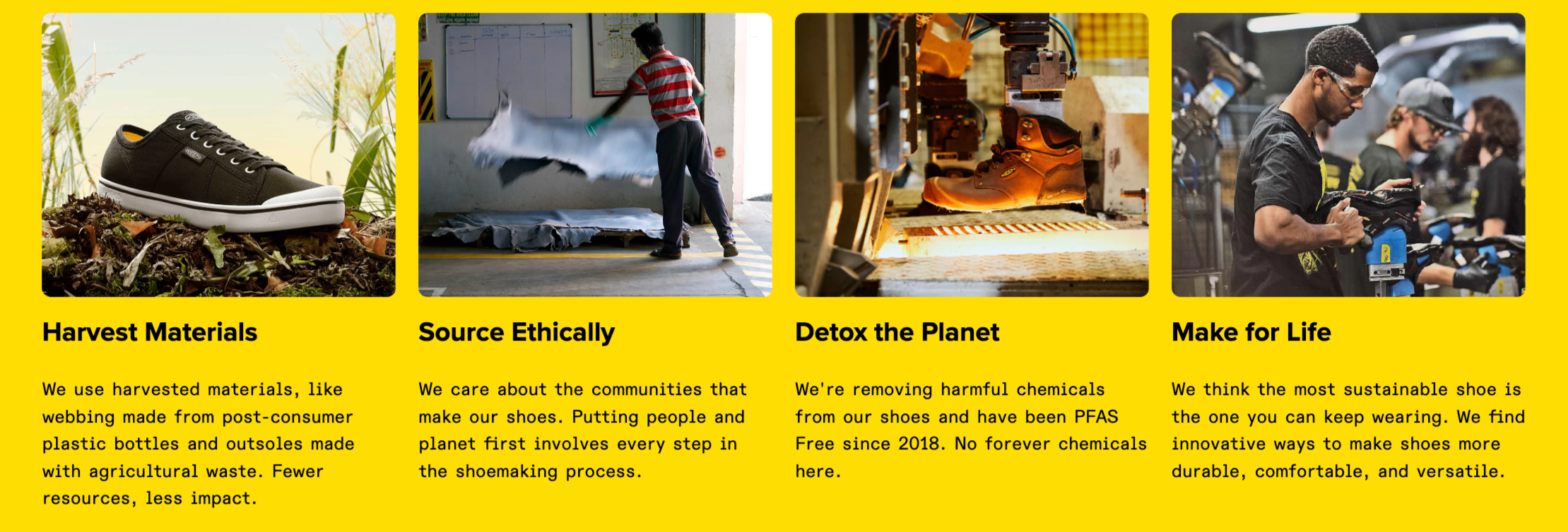
Their defining moment came in 2005 when they redirected their entire ad budget to support tsunami relief efforts. It wasn’t a PR stunt—it was a mission statement. That move set the tone for the brand’s long-term identity.
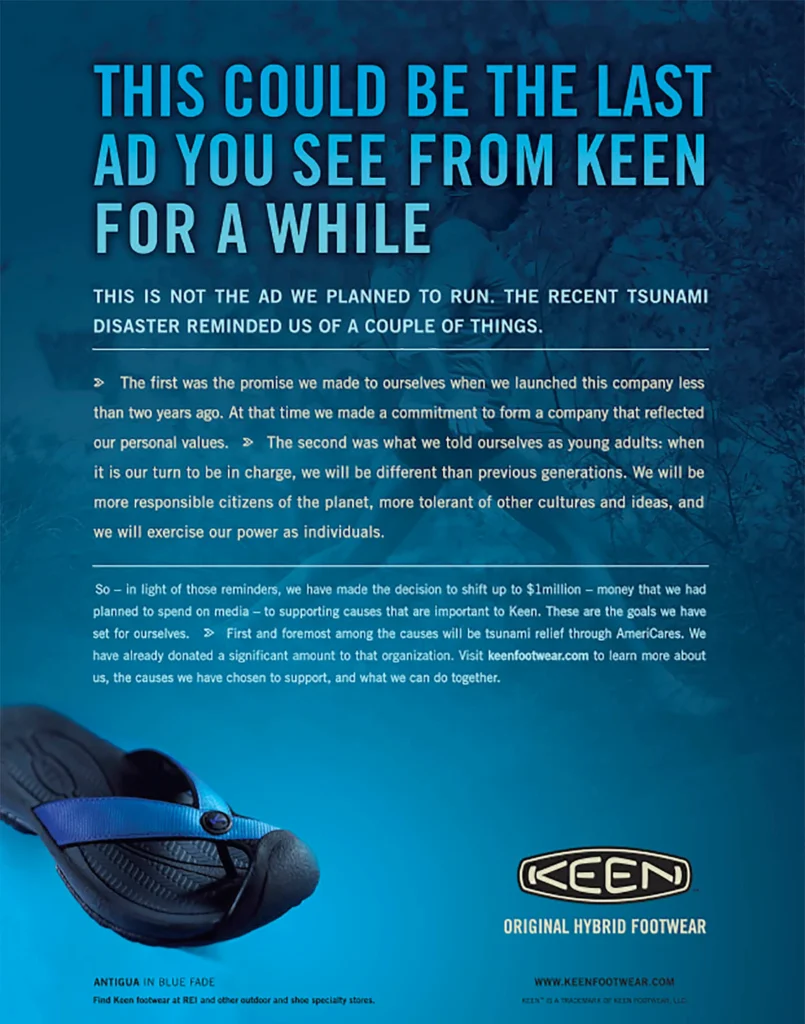
The “hybrid life” became both a philosophy and a positioning strategy.
Everything from their designs to their storytelling reflects this blend of utility, sustainability, and authenticity. In an age where consumers demand transparency and values they can get on board with, KEEN has built deep loyalty by staying true to its roots.
2. Product innovation that matches the mission
You can’t sell a movement if your product doesn’t live up to the message. KEEN’s innovation starts with solving real-world problems.
Their original hybrid sandal was designed to offer toe protection without sacrificing breathability—ideal for outdoor lovers who need both performance and comfort.
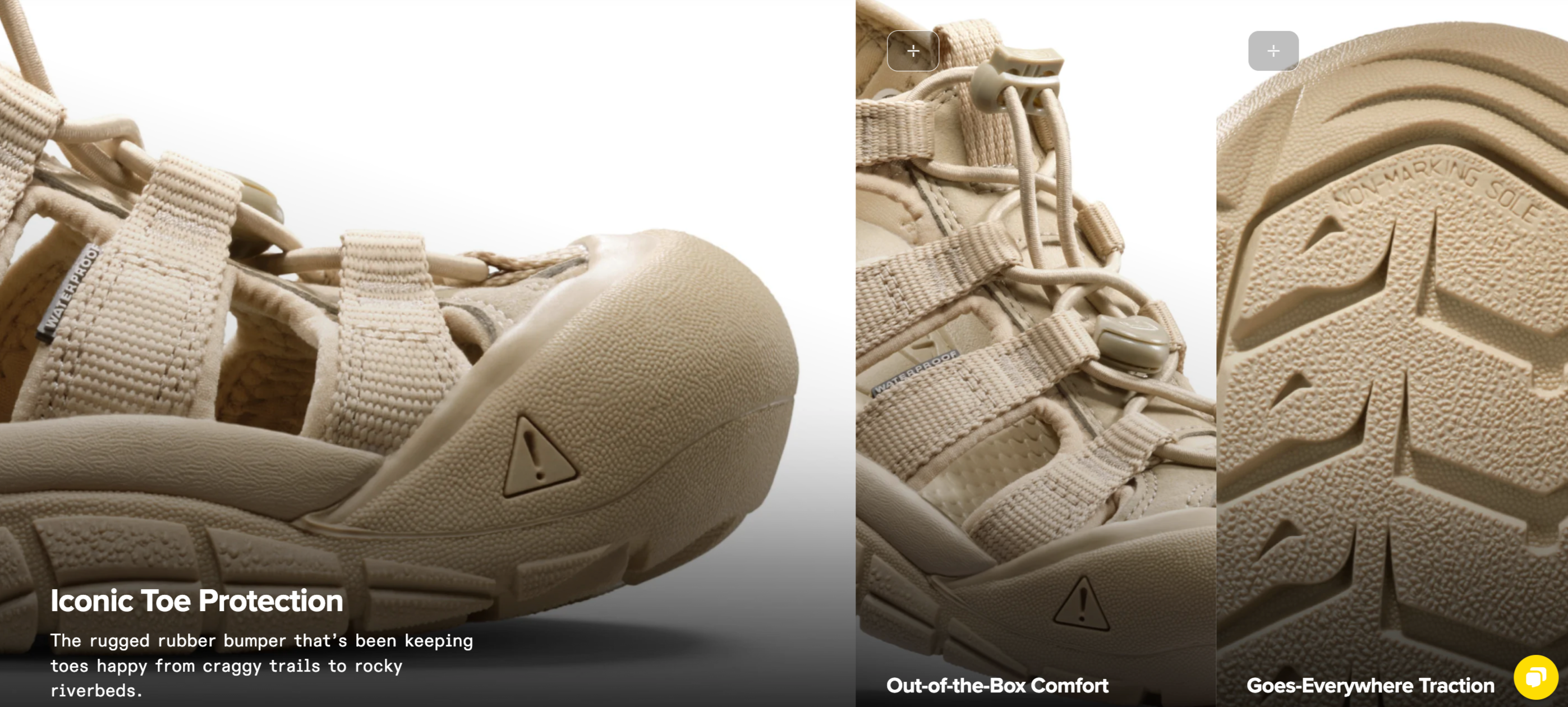
Since then, their product line has expanded, but the design DNA remains the same: functionality first, environmentally conscious, and built to last.
Many shoes use PFC-free water repellency and are made in factories with cleaner manufacturing practices. KEEN doesn’t just talk the talk on sustainability—they engineer it into every step.
3. Content marketing engine that educates and converts
Rather than relying solely on paid ads, KEEN turned content marketing into a core growth channel.
They built a rich library of SEO-optimized resources to answer common questions potential buyers might ask, like “What are the best hiking shoes for wide feet?” or “How to choose the right work boots?”
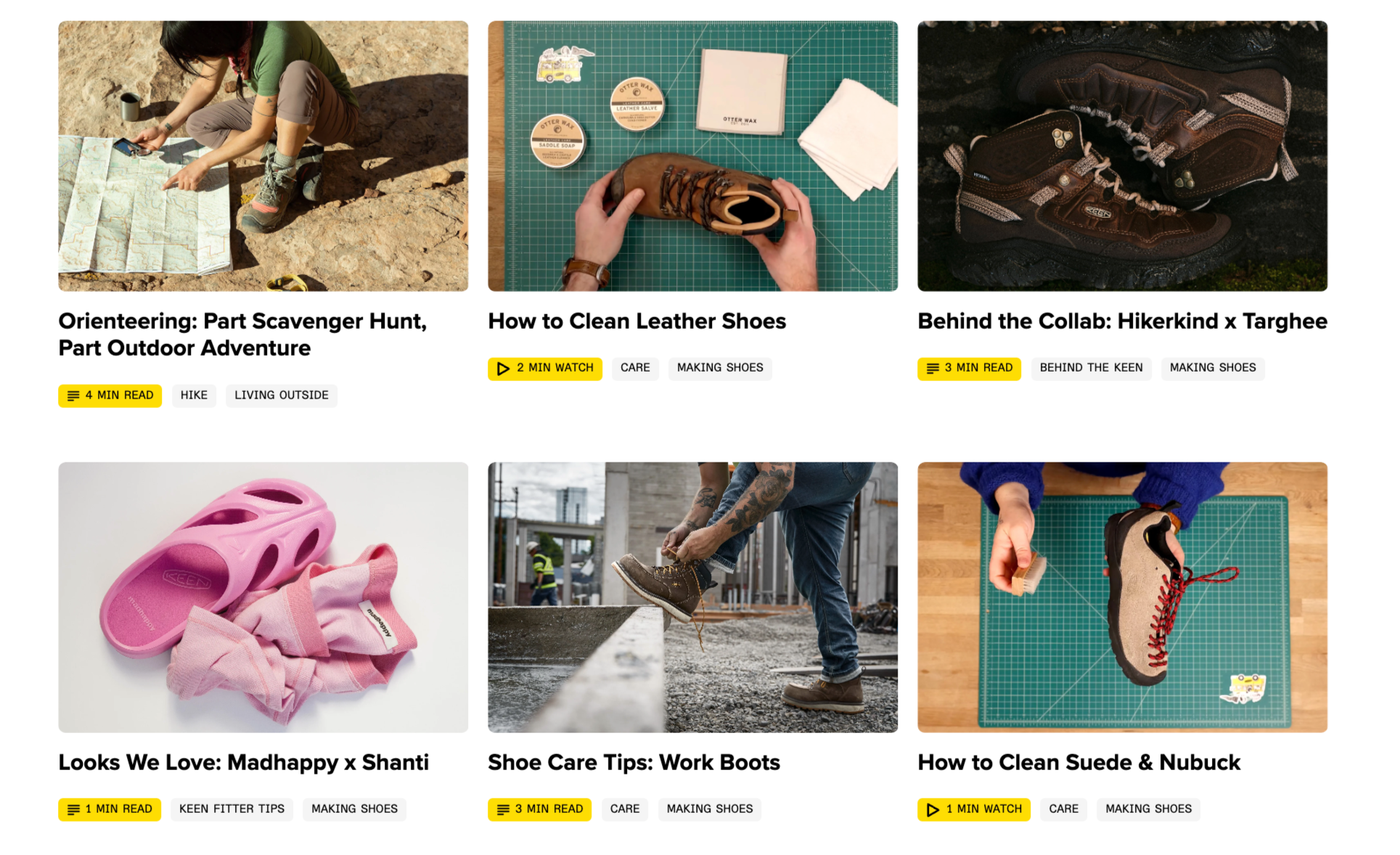
This strategy isn’t about vanity metrics or blog posts for the sake of publishing. It’s about meeting customers at the exact moment they’re looking for solutions—and being the brand that delivers real value.
KEEN’s content includes buyer guides, how-tos, expert interviews, and educational videos that help consumers feel confident in their choices.
The impact was immediate. Within six months of revamping their content strategy, KEEN saw a 542% increase in organic website sessions. Even more impressive, revenue attributed to content jumped by 1,000%. These are the kinds of numbers that prove content isn’t just a branding tool—it’s a revenue driver.
4. Smart advertising that resonates with real people
Their ad strategy focused on hyper-relevant messaging, tailored for each platform and persona.
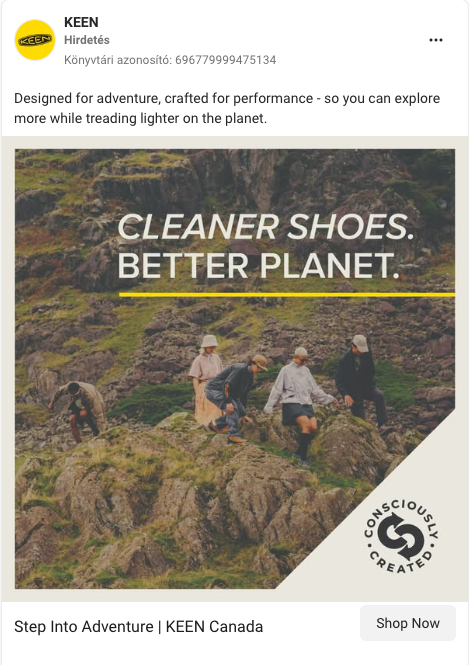
From Instagram Reels showcasing tradespeople in action to YouTube tutorials for hikers, KEEN made sure each ad felt more like a conversation than a commercial.
They also explored less obvious channels like Reddit and digital radio, reaching niche communities that aligned with their brand values.
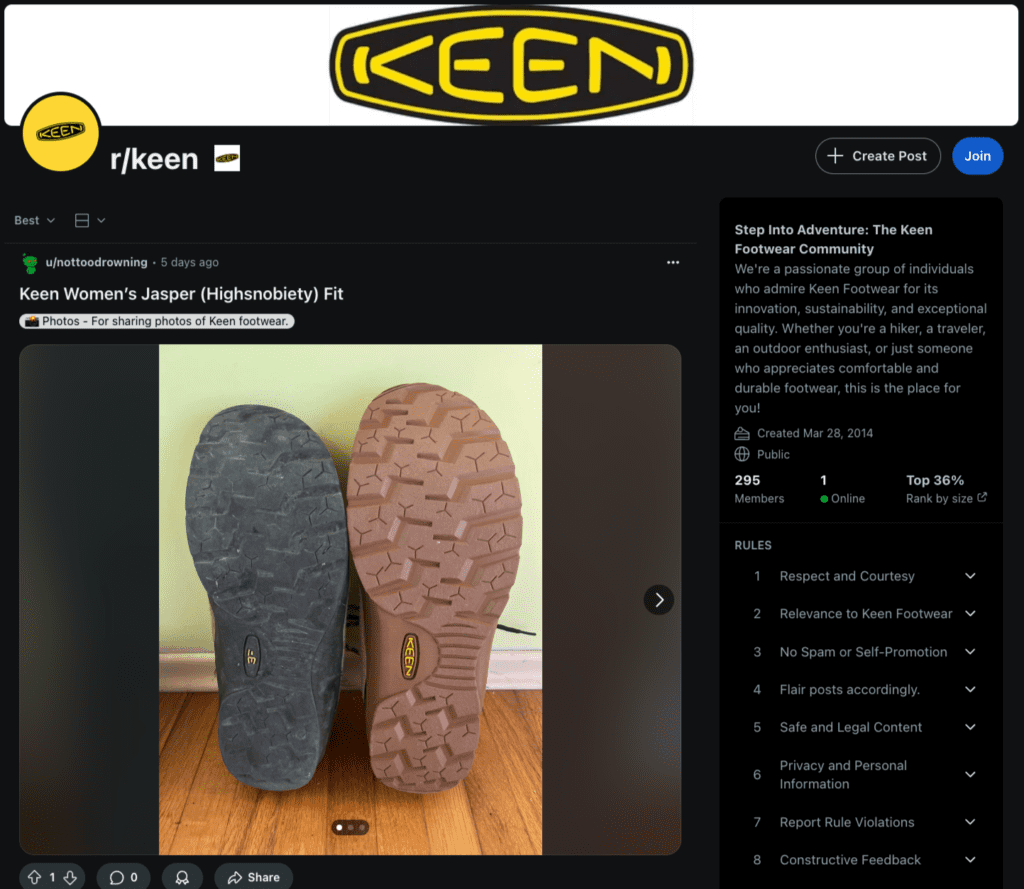
This isn’t spray-and-pray advertising. It’s strategic storytelling, served where it matters most.
5. Personalization at every stage of the buyer journey
KEEN understands that a great shoe means nothing if it doesn’t fit right. That’s why they use Fit Predictor, an AI-powered tool that recommends the best size based on a shopper’s past purchases, returns, and preferences.
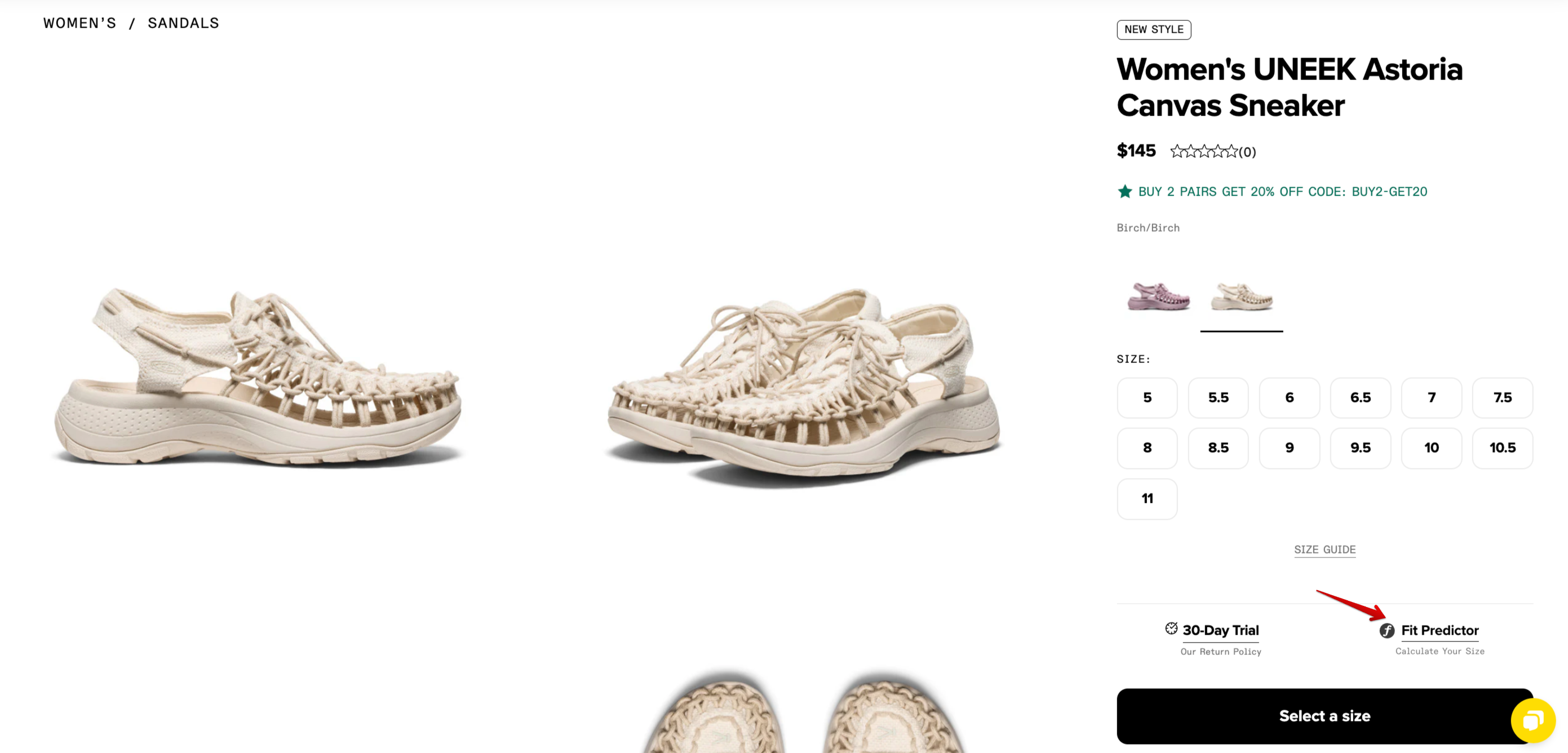
For new customers, Fit Predictor asks a few simple questions—like usual size, foot shape, and favorite brands—then compares those answers to a massive fit database.
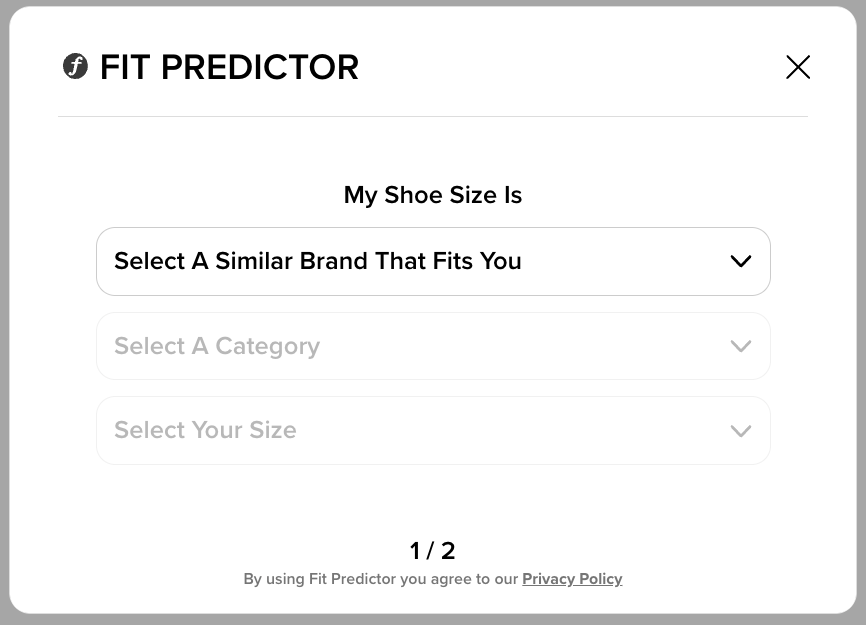
The result feels less like guessing and more like getting expert advice.
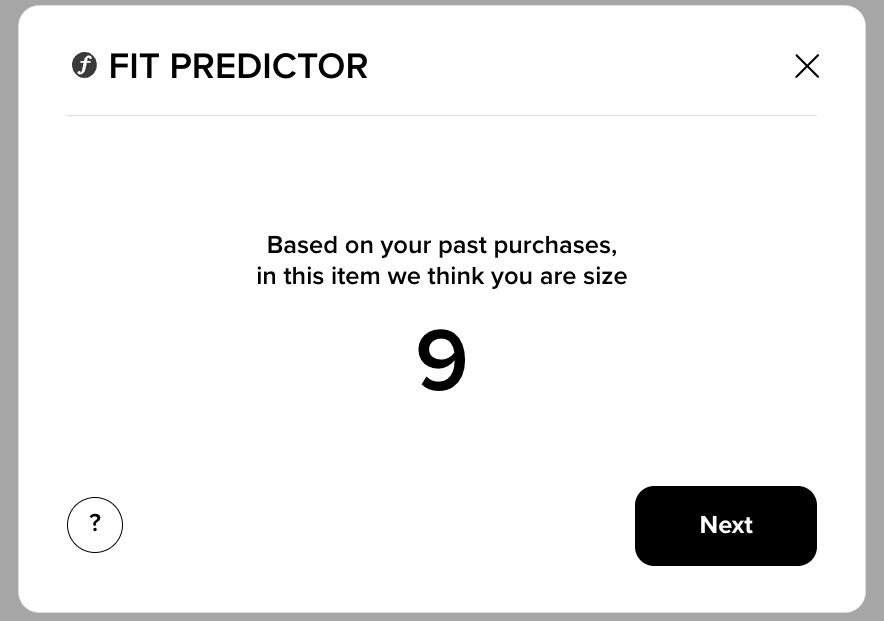
It’s working, too: KEEN has seen a 50% drop in size-related customer service inquiries and fewer returns overall, making the shopping experience smoother and more sustainable.
They also use advanced platforms like Salesforce Commerce Cloud to dynamically tailor content, email promotions, and on-site product recommendations.
Yotpo’s integration adds another layer of personalization, leveraging reviews and user-generated content to build trust and relevance.
6. Responsive pricing that builds consumer trust
KEEN took an unconventional approach when post-pandemic shipping costs began to normalize. Instead of pocketing the savings, they passed them on to customers, lowering product prices by around 5%. This wasn’t just about numbers—it was about values. KEEN showed that they’re committed to fairness, even when no one’s watching.
In a time when many brands quietly raise prices, this kind of openness stands out. It reinforces KEEN’s positioning as a company that puts customers first—not just in messaging, but in action.
That commitment shows up in other ways, too. KEEN offers a flexible, no-hassle 30-day return window, giving shoppers time to try their shoes at home and decide if they’re the right fit. It’s a powerful way to show that customer satisfaction—not just the sale—is what matters most.
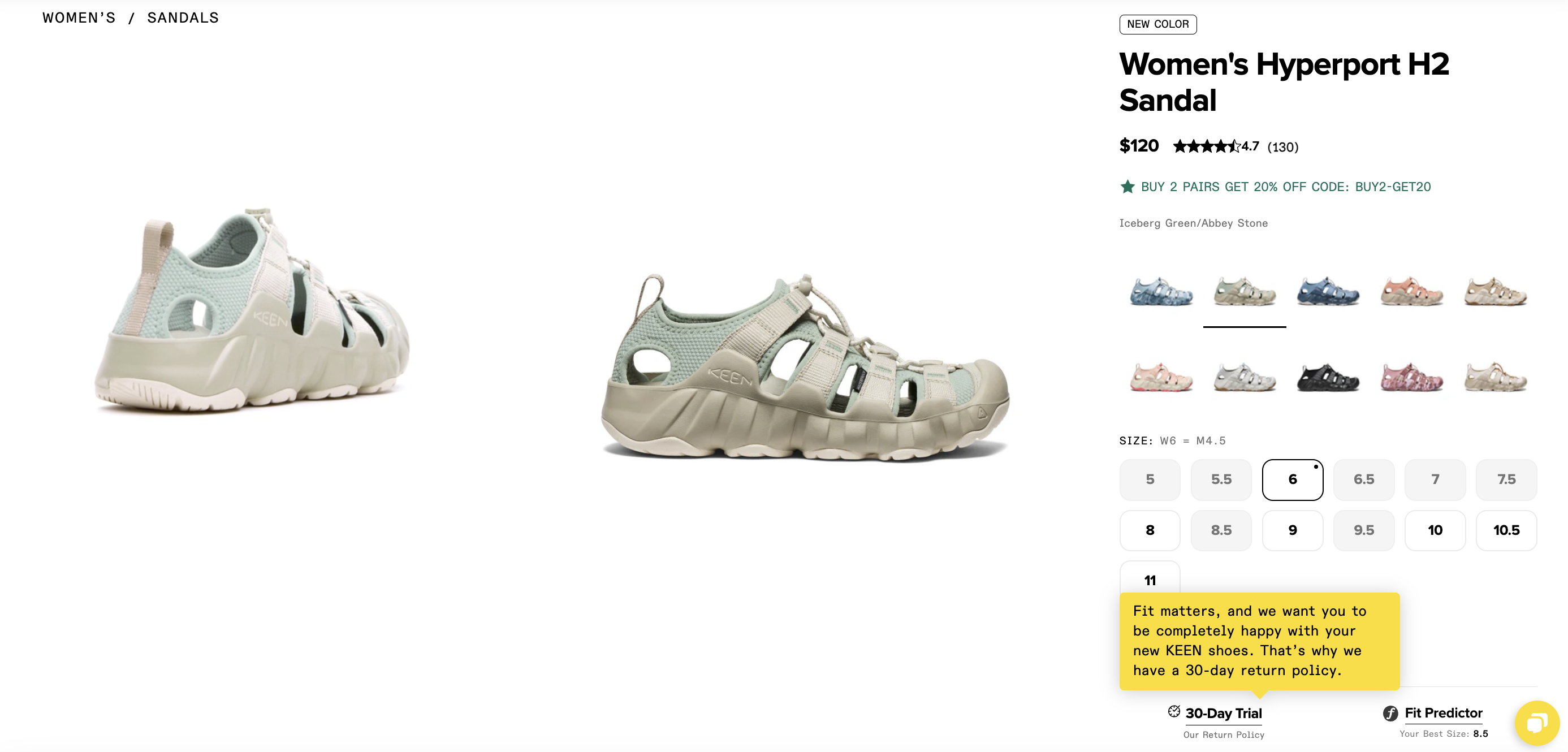
7. A commitment to protecting the brand
As KEEN’s popularity grew, so did the number of counterfeit products and fake websites claiming to sell KEEN gear. Rather than waiting for complaints to pile up, KEEN took a proactive approach.
They partnered with Red Points, a brand protection platform, to monitor and remove counterfeit listings online.
This initiative isn’t just about legal enforcement—it’s about safeguarding the customer experience. By actively defending their brand, KEEN reassures customers that they’re buying safe, authentic products. This level of vigilance adds another layer of trust to the overall brand experience.
8. Clicks without clunks
KEEN’s website is a masterclass in conversion-focused design, built to guide visitors smoothly from browsing to buying.
One of their most effective tools is a multi-step pop-up that offers a discount in exchange for an email address and phone number. This helps them grow their lists while giving shoppers an immediate reason to convert.
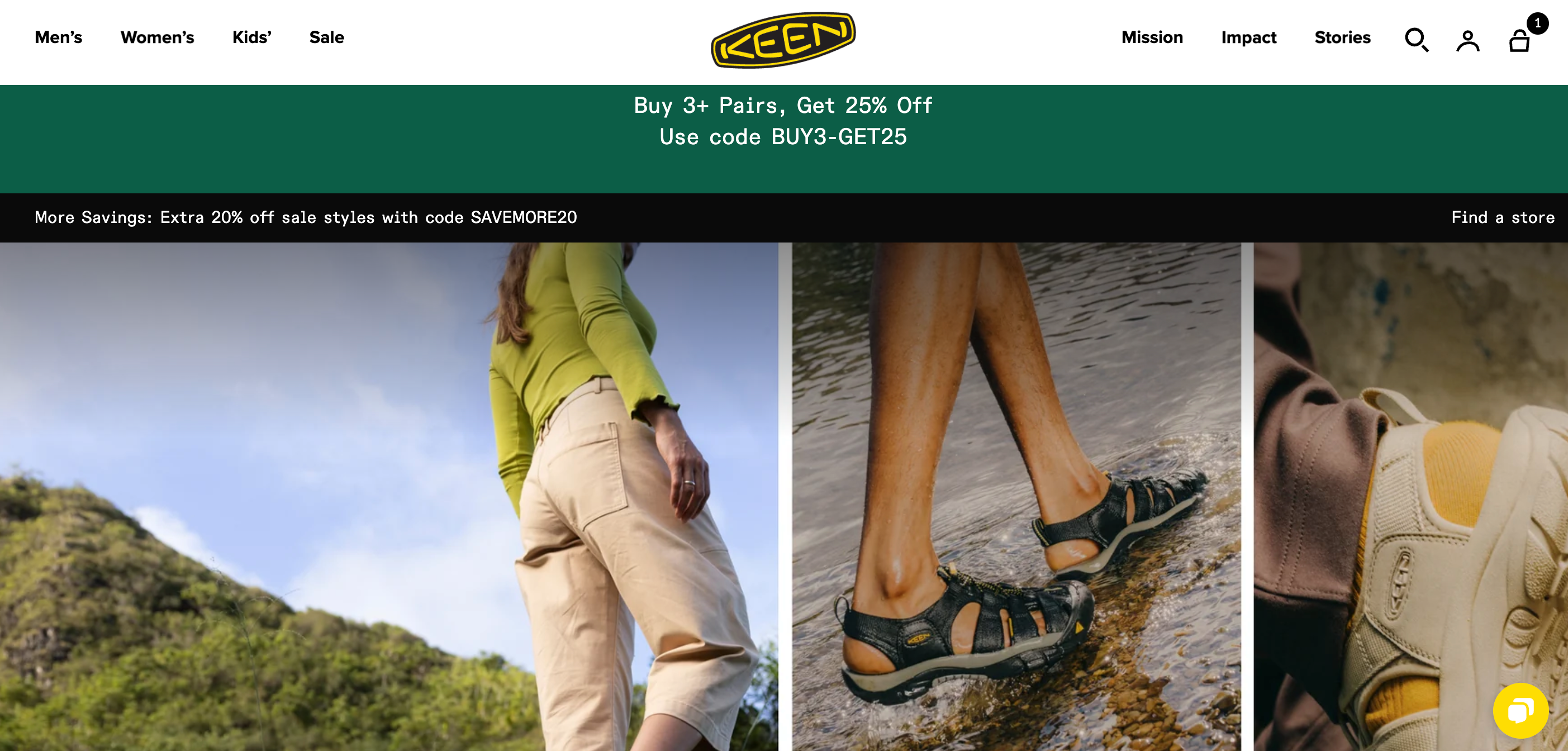
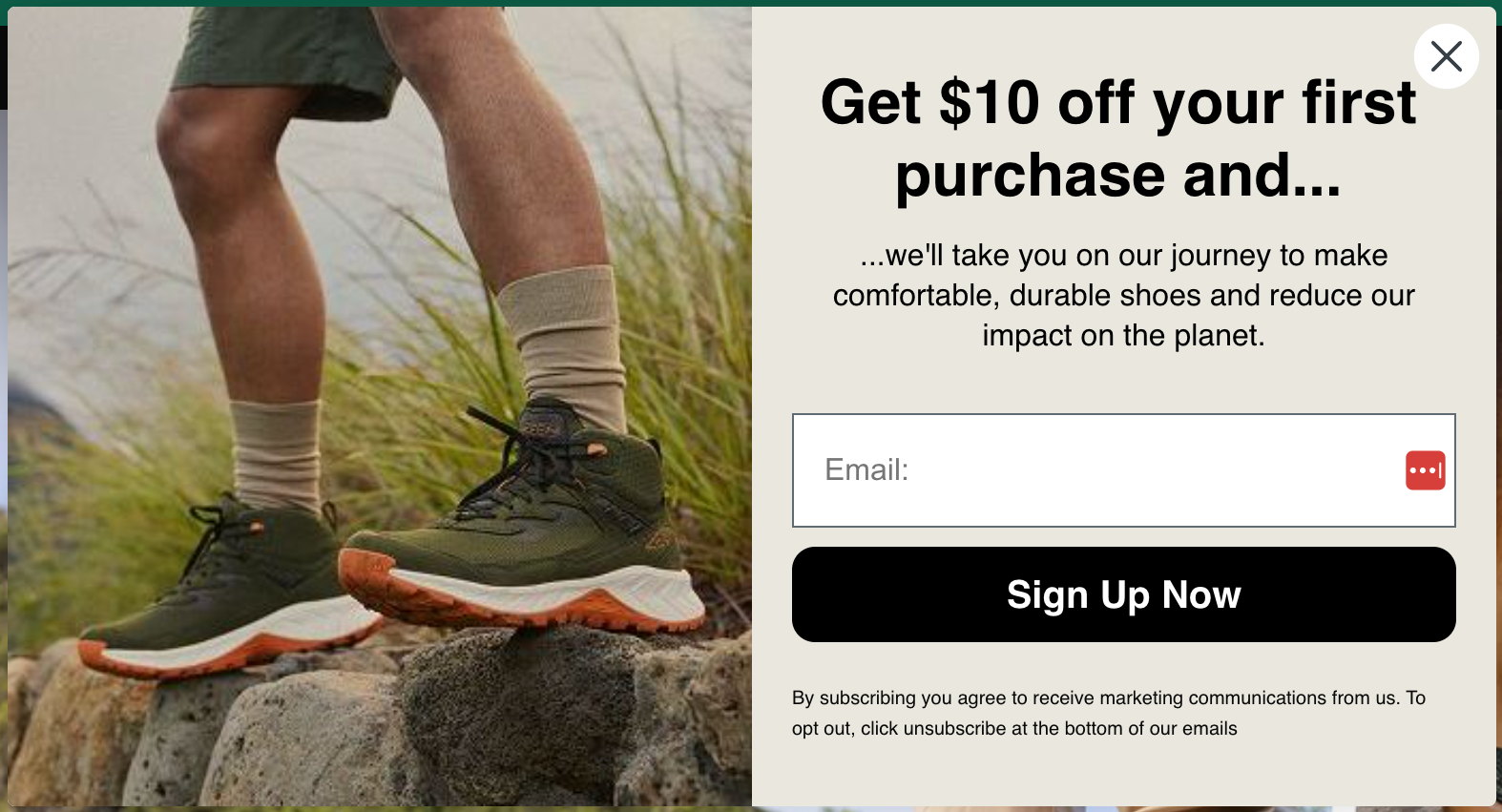
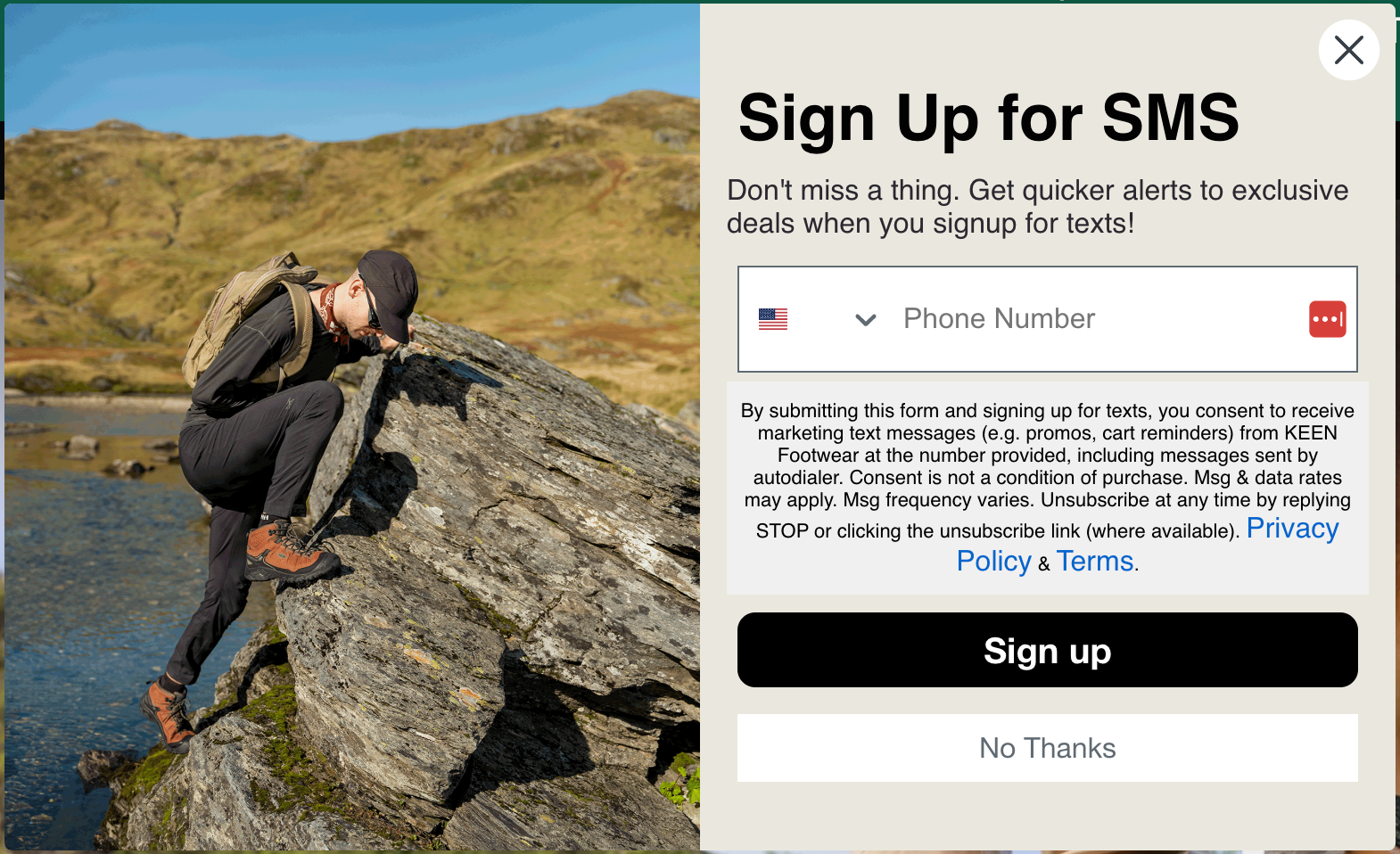
After that initial interaction, KEEN keeps the conversation going with personalized popups that remind users about their abandoned carts.
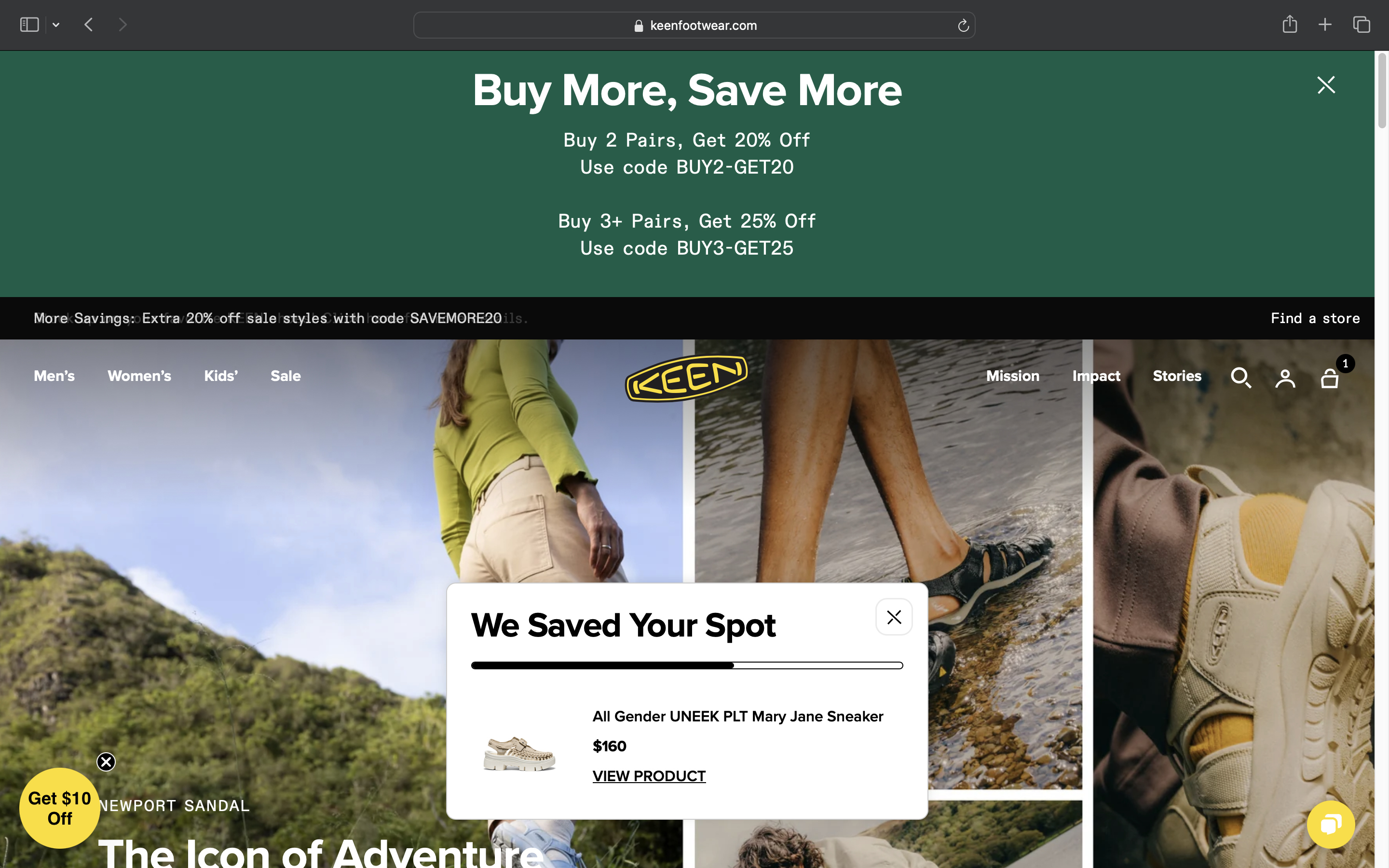
Even the cart page itself is optimized with upsell and cross-sell modules, dynamically showcasing items based on each shopper’s browsing behavior.
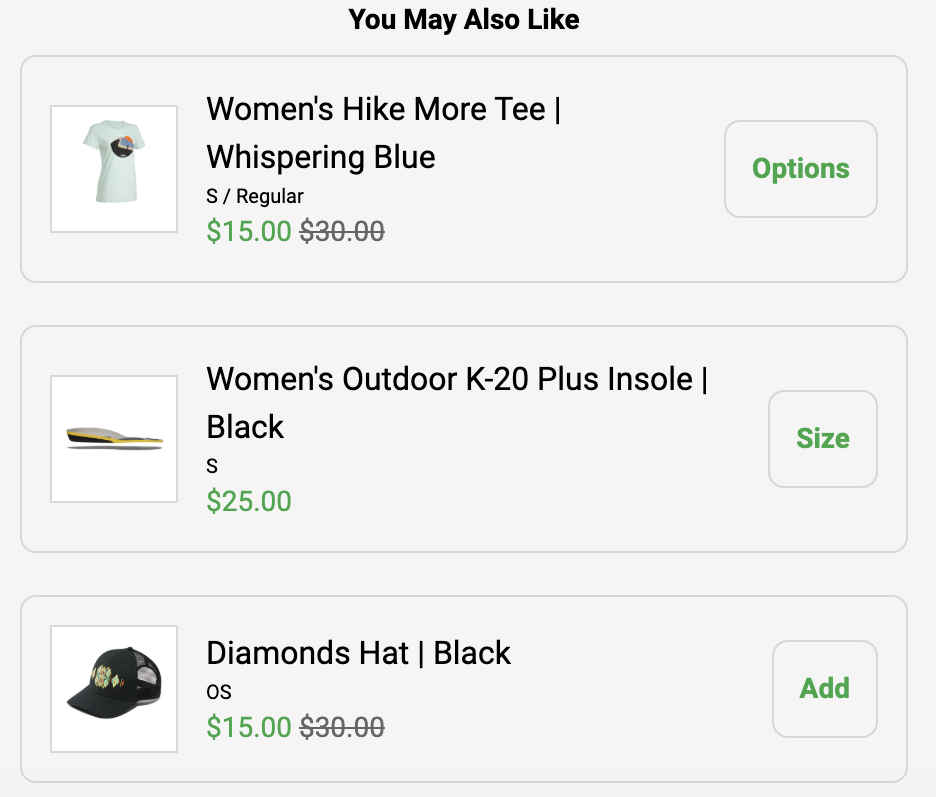
Each of these elements might seem minor on its own, but together, they create a frictionless, high-converting experience that drives serious results.
9. Brand ambassadors that drive engagement and sales
KEEN doesn’t rely on celebrity endorsements or traditional influencer marketing. Instead, they’ve created a global Ambassador Program made up of everyday adventurers who embody the hybrid life.
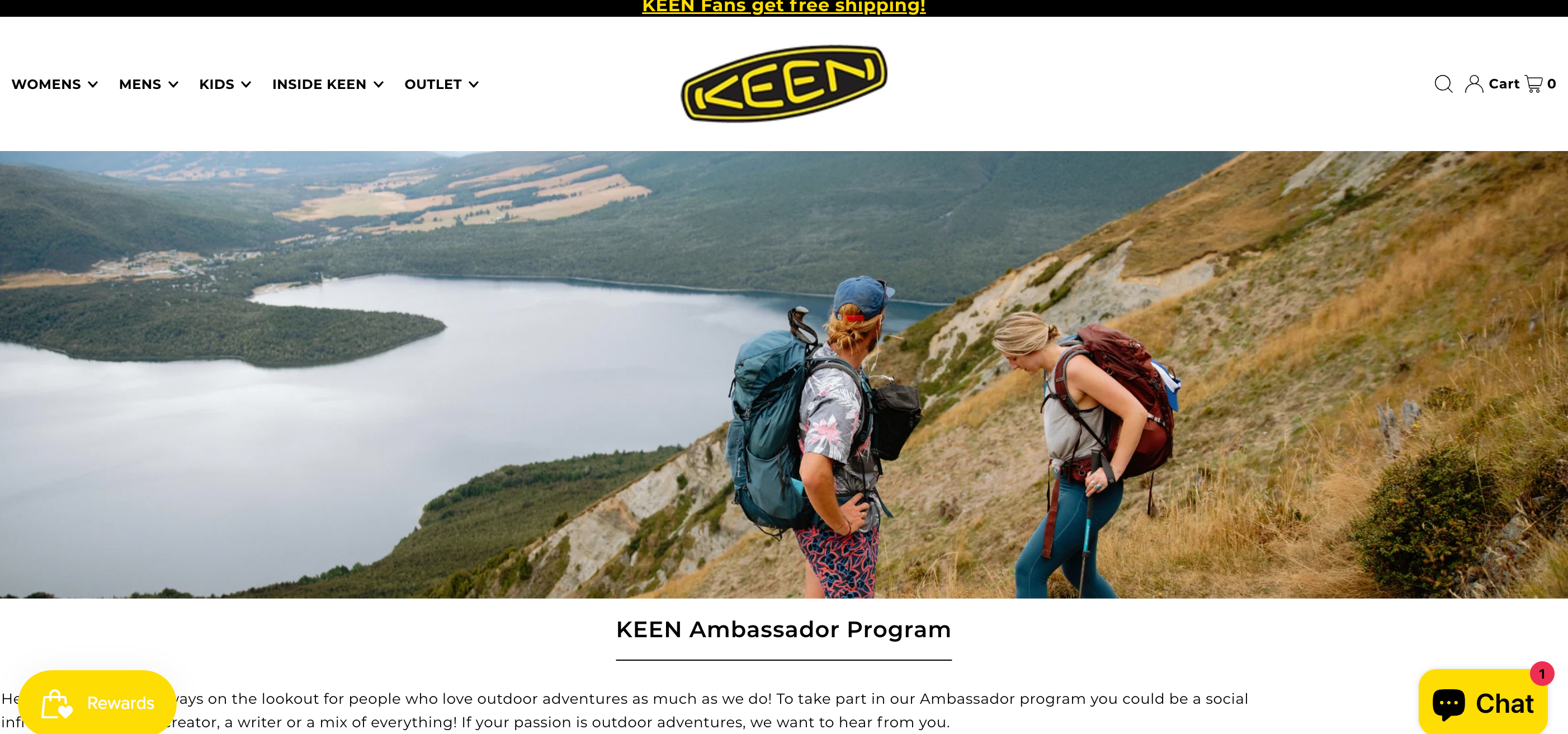
These ambassadors include hikers, artists, environmental activists, and tradespeople who use KEEN products in real life—and talk about them from genuine experience. They create content, lead local events, and even collaborate on product design.
This approach has helped KEEN build a community around its brand, rather than just an audience. It’s more sustainable, more authentic, and more impactful.
Final takeaway
KEEN Footwear shows that sustainable marketing success doesn’t come from gimmicks or viral tricks. It comes from clarity of purpose, consistency in execution, and a deep understanding of your audience.
They’ve proven that when you build your brand around what you believe in and then support that belief with smart, targeted marketing, loyalty follows.
So if you’re looking for a blueprint to grow your brand with integrity, impact, and long-term customer love, KEEN’s playbook is one worth studying—and borrowing from.
Learn more
Looking for more marketing breakdowns? Check out these articles:
- New Era Cap Marketing Breakdown: How a Hat Became a Cultural Icon
- KHY by Kylie Jenner Marketing Breakdown: What’s Fueling the Hype & What’s Falling Apart
- New Era Cap Marketing Breakdown: How a Hat Became a Cultural Icon
- SodaStream Marketing Breakdown: Sustainability, Partnerships & Bold Campaigns
- The Sill Marketing Breakdown: How They Grew into a Leading DTC Plant Brand
- Sol de Janeiro Marketing Breakdown: The Secret Behind Their Explosive Growth
- Drunk Elephant Marketing Breakdown: 6 Proven Strategies You Can Implement Today
Partner with us
- © OptiMonk. All rights reserved!
- Terms of Use
- Privacy Policy
- Cookie Policy













